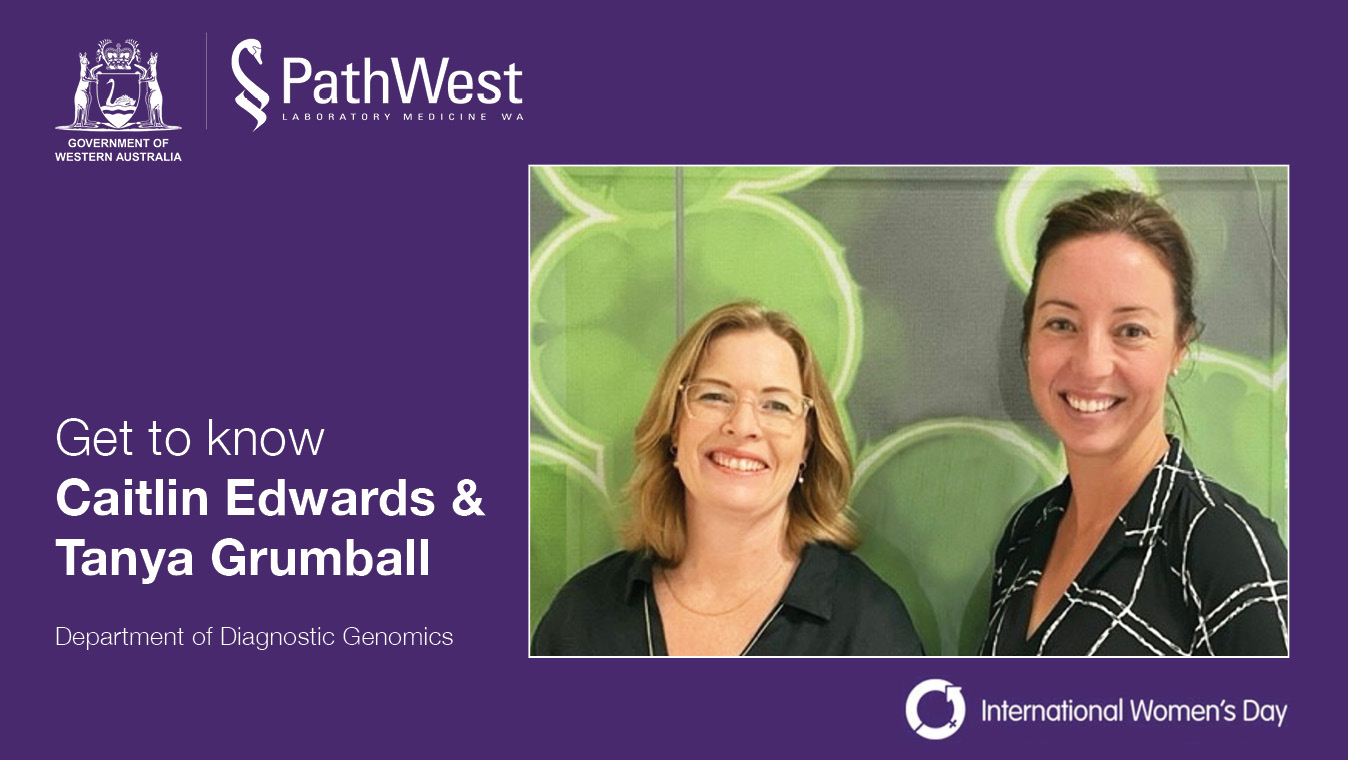International Women's Day Spotlight - Caitlin Edwards and Tanya Grumball

Get to know Caitlin Edwards (Scientist in Charge of the Familial Cancer and Developmental team) and Tanya Grumball (Scientist in Charge of Cytogenetics) at the Department of Diagnostic Genomics in our International Women’s Day Spotlight in its final week this week.
Caitlin Edwards
Caitlin started in Biochemistry at Princess Margaret Hospital (PMH) and King Edward Memorial Hospital (KEMH) 20 years ago, before filling a maternity leave position in Molecular Genetics at PMH in 2004 under the guidance of Dr Ted Edkins.
She refused to leave and in return sat her professional membership and fellowship of the Human Genetics Society of Australia (HGSA) in 2009 and 2013 respectively.
Caitlin is currently Scientist in Charge of the Familial Cancer and Developmental team in the Diagnostic Genomics department, working with an amazing bunch of science minded people. Outside of work, she is busy with her family and two kids, helping out with volunteering positions at her local primary school and sporting groups.
Tanya Grumball
Tanya has worked in the field of cytogenetics since 1995. She began at Western Diagnostic Pathology then moved to PathWest in 2006. Currently, the Senior Scientist in Charge of Cytogenetics within the Diagnostic Genomics Department at QEII.
In her role she oversees the scientific aspects of both conventional cytogenetics and the fluorescence in situ hybridisation (FISH) units as well as being a subject matter expert for the SoftCytogenetics module here at QEII. Throughout her career in cytogenetics there have been many advances in the field of diagnostic genetic testing however, both the conventional cytogenetics and FISH services have endured as a valuable tool in the diagnosis and clarification of genetic abnormalities.
Tanya says ‘The work that we do provides everyday challenges as we are one of the few areas where we are still routinely culturing patient samples in order to produce results. Additionally, the FISH unit has grown exponentially in the last few years and for some FISH tests we are the national referral centre. The work in both units requires a unique set of skills with lateral thinking, patience, attention to detail and at times a bit of a green thumb to get the final result. I am lucky to say that after all these years, I still enjoy the problem-solving aspect of the work and it is particularly rewarding when we help to provide explanations for a patient’s clinical presentation. My involvement with the Laboratory Information System (LIS) implementation also provided me an opportunity to stretch my skills in an entirely different direction which has also been rewarding.’

